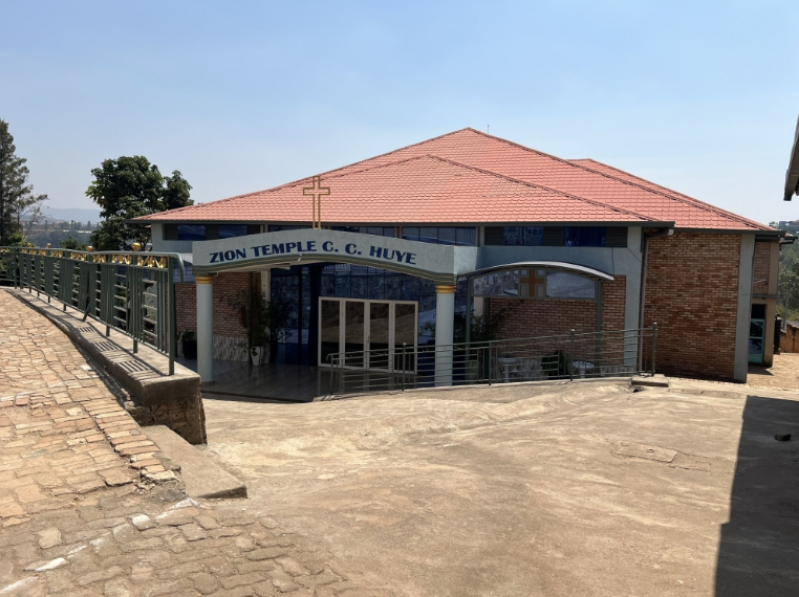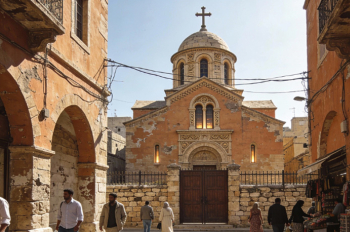
The World Evangelical Alliance (WEA) has determined that Rwanda's current religious regulations and restrictions do not meet international human rights standards. In its submission to the Universal Periodic Review on July 16, WEA has urged the Government of Rwanda to reconsider the 2018 law on Faith-Based Organisations (FBOs) and its 2025 amendment and related guidelines, suggesting that the law is in contravention of Rwanda's constitution that guarantees freedom of religion or beliefs and freedom of association.
The report also notes that the law goes against several continental and international statutes that Rwanda is a signatory to including the Universal Declaration of Human Rights (UDHR), the International Covenant of Civil and Political Rights and the African Charter on Human and People's Rights.
The law, titled "Determining the Organisation and Functioning of Faith-based Organisations," was enacted in 2018 requiring churches to register with the state, mandatory theological degrees for pastors, restructuring buildings to sound-proof them and a parking lot. Religious organisations had five years to comply with the law. When the grace period ended, the Rwanda Governance Board in collaboration with the local authorities enacted the regulations.
In July and August 2024, the board inspected more than 13,000 places of worship and subsequently closed approximately 7,700 churches for non-compliance with various regulations. Figures from other sources put the number of closures even higher, with nearly 10,000 churches closed in late July and early August, and more than 8,000 closed by the end of August.
The government estimates that around 70 percent of churches were shut down due to non-compliance. Many of the affected churches had minor infractions that could have been rectified, and a majority of those impacted were Pentecostal churches, noted the report.
The WEA report considers that some of the regulations are incompatible with international human rights standards while others are impractical and an over-reach by the state. It argues that it is the religion's responsibility, not the state's, to establish qualifications for clergy.
An elder from the Association of Pentecostal Churches in Rwanda quoted by Religious News echoed this sentiment, stating, "It’s God who calls people to serve him, and not the level of education or intelligence someone has."
The report points out that FBOs face significantly higher standards than non-governmental organizations (NGOs) under separate legislation. For example, NGOs are not required to have their legal representatives hold university degrees or possess a building, only a legal address, placing FBOs at a disadvantage.
Additionally, concerns have been raised about the government's frequent changes in building requirements, making previously compliant structures non-compliant. There is also a lack of flexibility for existing buildings that cannot alter their property size or parking to meet new regulations.
"The enforcement mechanism of closing churches and houses of prayer for violations of health and safety standards is draconian unless the building is completely unsafe," the WEA report observes, adding that the RGB "could instead issue a violation notice and give the church a period of time for compliance. It would be of assistance for the RGB to clarify the applicable standards, which are amended from time to time."
The law prohibits unregistered religious activities, including gathering in homes for worship, leading to fears of arrest among congregants. A woman whose Pentecostal church was closed stated, "We are compelled to hold our services in secret and in silence" due to "fear of arrest". Another elder noted, "The closures have left us with no option but to gather in our houses and worship secretly".
New regulations introduced in March 2025 further tightened the government's control of FBOs. The RBA now requires that congregations can only meet in a house of worship that is exclusively used for this purpose effectively making open-air crusades and door-to-door evangelism illegal.
The WEA report links this new regulation to President Kagame's view that rogue pastors are "exploiting poor Rwandans to enrich themselves." But as the WEA notes, the law does not target the "rogue pastors" only but rather applies to all churches.
"It certainly does not meet the standard of the least restrictive means to protect the population of Rwanda from such 'unscrupulous people,' as stated by President Kagame. We note that fraud is a criminal offence in the Rwanda Penal Code. There is therefore an enforcement mechanism if 'rogue pastors' are committing fraud."
Additionally, the new regulations further intensified control, requiring pastors to have a minimum of 1,200 hours of training in religious practice and mandating a non-refundable service fee of Rwf 2,000,000 (approximately $1,500 USD) for legal personality applications. These regulations also require new organizations to have 1,000 founding members.
In June 2025, the RGB issued new guidelines on "Religious Preaching that Aligns with Rwandan Values." While promoting laudable values like peace and national identity, these guidelines also prohibit "misleading teachings, false or end-times prophecies or miracles," which the WEA argues allows the state to determine legitimate religious beliefs and practices, violating international human rights law. This raises concerns that any criticism of the government could be deemed illegal.
Open Doors, an organization serving persecuted Christians worldwide, notes that "dictatorial paranoia" is a dominant persecution engine in Rwanda, with the government exerting significant control over religious institutions and practices. This control extends to monitoring church activities, infiltrating gatherings, tracking communications, and interfering in the selection of religious leaders.
The crackdown has seen the persecution score for Christians in Rwanda steadily rise, moving from 42 points in 2021 to 58 points in 2025 on Open Doors' World Watch List, ranking the country at 64th globally for Christian persecution. The "Church sphere" has experienced a "drastic impact," with pressure significantly increasing due to church closures and the difficulty in obtaining or renewing licenses. This has made establishing new churches "practically impossible".
The stringent requirements and punitive measures have forced many Christians to gather in homes, risking arrest, and have led some pastors to migrate to neighboring countries like Uganda and Tanzania.
The WEA urges Rwanda to review its laws and guidelines to ensure compliance with international human rights standards, uphold neutrality, and establish more flexible compliance processes to allow places of worship to remain open while addressing deficiencies. Human rights organizations continue to monitor the situation, emphasizing the importance of religious freedom as a cornerstone of a healthy civil society.






